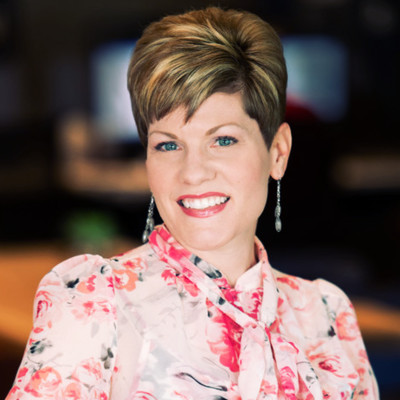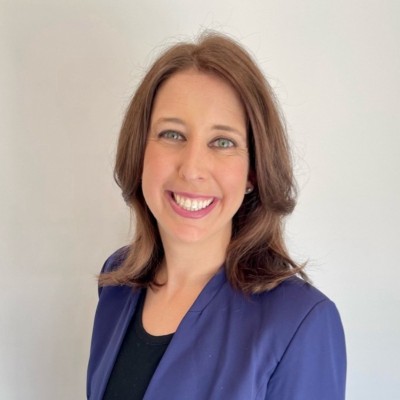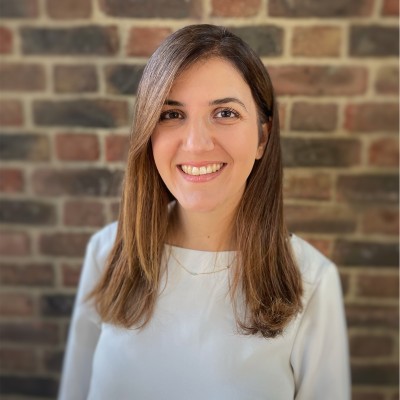Book Club: Amy Franko on Enabling Reps for the Modern Selling Landscape
2.6K Views | 17 Min Read
Olivia Fuller: Hi and welcome to Book Club, a Sales Enablement PRO podcast. I’m Olivia. Fuller. Sales enablement is a constantly evolving space and we’re here to help professionals stay up to date on the latest trends and best practices so they can be more effective in their jobs.
As the sales economy has shifted, so have the ways that buyers engage with salespeople and this means that the skills and tools that salespeople need to be successful today are constantly evolving and sales enablement can be the key to equip teams for high performance. Amy Franko explores this evolving landscape and best practices to enable success in her book, “The Modern Seller”. I’m so excited to have Amy with us today to talk a little bit more about some of these best practices.
With that, Amy, I’d love it if you could just take a second and introduce yourself to our audience and tell us a little bit more about your book
Amy Franko: Olivia, it’s great to be here. Thank you for having me and just a little bit about myself, I got my start in technology sales. For the first 10 years of my career, I was in the tech space and I was in sales roles for companies like IBM and Lenovo. Then about 15 years ago I took the big leap into entrepreneurship and I started my own organization that really is a fun, exciting intersection of all the things that I love to do, which is sales, leadership, and learning and development. Sales enablement is really a great descriptor for the type of work that I love to do because today what I do is I work with mid-market-sized organizations across a variety of different sectors. I will work with their CEOs, or their sales teams, a lot of times it’s a combination of both, and what I help them to do is improve their sales growth, improve their results in the realm of sales strategy and also skill development and in other consulting oriented problems that they’re looking to solve. So that’s a little bit about me in a nutshell and in the work that I love to do, that I get to do.
OF: Fantastic. Well, we are so excited to have you here and to learn from all of your amazing expertise. You actually spoke at one of our events last year, the Enablement Assembly and in that you shared an interesting statistic that sellers that are hired today could need up to 10 new skills in less than two years. Why do you think that sales skills are evolving so quickly?
AF: Yeah and in that particular skill or that particular statistic I should say was something that I had picked up in my own research from Harvard Business Review and when I read that particular statistic it really struck me because of just the acceleration of what sales professionals and also by connection, sales enablement professionals, need to be continually evolving and learning. I think the reason why it has grown so exponentially and so quickly is that there’s just a larger swath of skills that are needed for sales professionals and sales leaders to be successful. It is not only the tactical skills of a sales process. Identifying opportunities, prospecting, presenting, negotiating, closing, those skills are still extremely important, but now they’re surrounded by other types of skills. Skills behind the skills, I like to call them. These are things like business acumen, things like agility, thinking like an entrepreneur. These are the things that were really the catalyst of writing “The Modern Seller”. So, I think that that swath of skills has really gotten a lot wider. I also think it’s a great opportunity for sales professionals and sales enablement professionals to not only build those skills and themselves, but sales enablement professionals I think can be cutting edge and be leaders and make sure that sales leaders and sales organizations are building those skills.
OF: Absolutely. So your book details five of those skill sets that are really becoming essential to sales success today. You talk about being agile, entrepreneurial, holistic, social and ambassadors. I’m wondering if you could tell us a little bit more about why those skills rise above the rest and then what role do each of those skill sets play in today’s selling landscape.
AF: It was interesting as I was researching the book. As I was researching the book, I was interviewing sales leaders and sales professionals, mining my own experiences, mining current research and really just looking at my clients and prospective clients and as I was looking through all of those sources and looking for patterns and trends, which is absolutely a skill of today’s sales professionals and sales enablement professionals, what I started to see were these categories that were presenting themselves to me and those were those five that you just mentioned. I call them the five modern selling capabilities and I see these as skill sets that we can be building as sales leaders and sales professionals that help us to better execute the everyday sales skills that we need to be working with our clients and our prospective clients.
OF: Definitely. So in this modern sales economy, how can enablement leaders help salespeople keep pace with all of this rapid change and really stay ahead of the curve?
AF: I like to think in frameworks and I teach in frameworks so that’s how I’m going to tee up the answer to this question. I really believe that sales enablement leaders, practitioners think in what I like to call a center of excellence type of framework. For any given organization, there are a variety of centers of excellence that are needed to be successful with sales. This is everything from your structural pieces like your technology stack, your CRM to your process-oriented pieces, like your sales processes, your sales methodologies, your people. So your talent acquisition, the way in which you compensate people, the way in which you skill people up. So there are different centers of excellence that I believe that if sales enablement professionals and leaders can organize around those and tap into them, they can solve virtually any sales problem to help their sales organization excel.
OF: Absolutely. You also mentioned in your book and I found this very interesting you know that there’s a disconnect today between executive leaders and the sales organization. I’m wondering if you could tell us a little bit about some of the potential symptoms and repercussions of that disconnect and how can enablement really helped bridge that gap effectively.
AF: Yes. If I start with the back end of that question first with the role that sales enablement professionals can play, I see this in the learning and development space too, and I think it translates well. First, it’s the concept that as sales enablement professionals and leaders that you are peers and you are in the business. You may have certain things that you specialize in like talent acquisition or tech or whatever that happens to look like, skill development, but you have to see yourself as someone who works on improving the business first and seeing yourself as a peer. I think that’s a big part of the equation where sales enablement professionals can play, but to kind of come back to the first part of that question, which is what, what are some of the issues?
I think one of the biggest issues is the disconnect and sometimes the communication challenges between a board of directors, executives, executive staff, so your C suite and then the sales organization. So for example, if especially in publicly traded organizations, you maybe get some analyst advice or analyst opinion, I should say, about how the organization might structure itself to be more profitable into the future, you might have a board or a CEO that says we need to change our go-to-market strategy, we need to change the way in which we price and sell certain products or solutions. That can have a major downhill impact on the sales organizations and on customers and it’s something that I see pretty regularly because it ends up having an unintended consequence.
The symptom is the lack of communication at the top and changes in the business that are made sometimes at the top without thinking all the way through what the unintended consequences might be. The result is the unintended consequence which could be lost customers, lost revenue, lost star performers on your sales teams because they aren’t happy with the outcome of some of those decisions. Those are some of the things that I see the disconnect in those groups and sales enablement professionals and leaders can be the solution to that because if they’re paying attention to everything that’s happening from that sales perspective, people process technology, they can plug in and be a part of that solution, assuming that they have the right seat at the table, right, that they have to be a part of those types of discussions at the very top of the house.
OF: Absolutely, and one of the things that you mentioned there is really the importance of relationships. Building connections across the business really requires you to have very strong relationships with partners. A strategy that you recommend in your book is actually called the Social Capital Framework, which includes the idea of a mindset for relationship building. How does that mindset really influence enablements’ ability to build effective relationships, particularly with stakeholders?
AF: Yes, so for anybody who’s watching or listening, just to give you a very quick recap on the framework, so that social capital framework has four pieces to it, there is mindset, there are goals, there is your network ecosystem and your habits and they all play a role in your ability to build really strong strategic high impact relationships. The mindset piece is so interesting because it’s probably the most foundational piece, but sometimes you have to take action in the other parts of the framework in order to build the mindset, it’s sort of this double-edged sword, if you will.
I would say from a mindset perspective the mindset first, and I’ve alluded to this a little bit, is that you are a professional in the business, who happens to have sales enablement expertise and taking the mindset that you are a bridge builder. You are a relationship builder. You have a strategic seat at the table. You’ve earned that seat at the table. We have to have that talk track in our minds, so that’s part of the mindset, but the action also has to follow where you’re building your own skills. You are making sure that you’re a part of the right conversations and that’s where sales enablement leadership can play a really important role. But the mindset and the action have to have to be in sync. And sometimes you have to take the action to build the mindset.
OF: One thing that you talk about when it comes to building those partnerships and relationships is the idea of nurturing your network ecosystem. I’m curious if you could tell us a little bit, what advice would you give enablement practitioners to really build out their network and develop some of those high impact business relationships and how can that actually help enablement stay ahead of some of the trends as you know, the sales landscape continues to evolve?
AF: Yeah. I’ll give maybe two or three real tactical pieces of advice around building those relationships. I would say first and foremost, and some of this depends on your own personal career background, so I feel like I was very fortunate to have 10 years of my career early on in sales because it gave me such a fantastic foundation for what I do now. But not every sales enablement professional may have been in a sales role, right? So I always highly encourage any professional or leader, spend some time with your sales teams, whether you’re spending time with them virtually, or if you have the opportunity to spend time with them in person and with customers that right there is always gold because it just gives you a real-life perspective of what a customer might be going through, what a sales professional might be going through in order to create successful relationships. That’s always one of my first pieces of advice to anybody in the sales enablement field is to spend that time.
Beyond that, looking at your own skill set in order to build business acumen in order to continue earning that seat at the proverbial table, building your skill set in things like go-to-market and strategy, like sales strategy or go to market strategy, building your skill set in finance will help give you more credibility for having conversations with high-level executives or perhaps board members of your organization. If I just use myself as a very quick example, I don’t have a finance background, but I am the board chair of a local nonprofit here in Columbus the Girl Scouts and I wanted to build that financial muscle and I knew I would need it as the board chair. I joined the finance committee and I don’t have a finance background and I’m with people who are audit professionals and finance professionals and CPAs, very smart finance people. But I brought a different lens to it and an entrepreneurial lens, a sales lens and I asked different questions. Not only was I learning, but I could also add value in a different way. If you don’t have those skills don’t let that stop you from getting those skills.
Then my very last tactical piece of advice is to be a connector and to almost think about your sales team’s almost like prospecting in a way you want to connect with the people that you’re serving and introduce them to maybe one another, to new ideas, to new resources when you are a connector in your organization or you’re part of an organization like Sales Enablement PRO that that right there is gold because you build so many different types of relationships and connections that you can’t help to start seeing those connections and then helping other people make those connections.
OF: Fantastic, Amy, thank you so much for sharing all of this insight with us today. I know I certainly learned a ton from you and I know our audience will as well so thank you again. For our audience, how could they connect with you?
AF: Yeah so the two best places to connect with me: the first is on my website, amyfranko.com. You can go out there to learn how to get the book which is available on Amazon. There are lots of other free resources out there as well and then secondarily feel free to connect with me on LinkedIn and let me know that you heard me on this podcast. It would be great to see you out there as well.
OF: Wonderful. To our audience. Thanks for listening for more insights, tips, and expertise from sales enablement leaders visit salesenablement.pro and if there’s something you’d like to share or a topic that you’d like to learn more about, please let us know. We’d love to hear from you.














